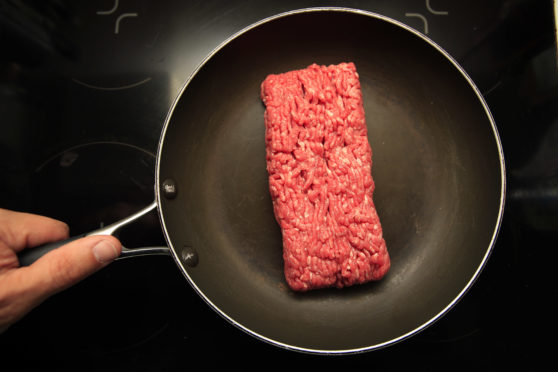
Eating red and processed meat increases the risk of an earlier death, experts have warned, as they urged people to switch to fish and vegetables.
Swapping red meat for healthier proteins such as eggs, nuts and fish can lead to a longer life, they said.
The new study, published in the British Medical Journal (BMJ), examined the dietary habits of more than 81,000 people in the US.
People were asked how much they had eaten on average per year of different types of foods over the previous eight years, including red and processed meats (such as ham, hot dogs and bacon), nuts, fish, eggs, whole grains, legumes and chicken and turkey without skin.
The results showed that people who increased their red and processed meat intake by at least half a serving per day over the eight years had a 10% higher risk of dying in the subsequent eight-year period.
The increased risk for processed meat alone was 13% and was 9% for unprocessed red meat.
Half a serving of red meat was regarded as 42.5g while half a serving of processed meat was one rasher of bacon (6.5g), half a hot dog (22.5g) or 14g of sausage.
The researchers found that people who cut their red and processed meat intake while swapping for healthier foods, such as eggs, chicken and fish, enjoyed a longer life.
A decrease in red and processed meat consumption and a simultaneous increase in the consumption of nuts led to a 19% reduced risk of dying over an eight-year period.
Swapping a daily portion of meat for fish cut the risk by 17%, whole grains by 12% and poultry without skin by 10%.
Swapping to vegetables cut the risk by 10%, eggs by 8% and legumes by 6%.
Previous studies have shown that red and processed meat is linked to an increased risk of Type 2 diabetes, heart disease and bowel cancer.
The researchers, based in the US and China, concluded: “This association with mortality was observed with increased consumption of processed and unprocessed meat, but was stronger for processed meat.
“A decrease in total red meat consumption and a simultaneous increase in the consumption of nuts, fish, poultry without skin, dairy, eggs, whole grains, or vegetables over eight years was associated with a lower risk of death in the subsequent eight years.
“These findings suggest that a change in protein source or eating healthy plant based foods such as vegetables or whole grains can improve longevity.”
Dr Giota Mitrou, director of research at the World Cancer Research Fund, said: “This new study reinforces our own evidence that eating red meat or processed meat increases the risk of cancer.
“We know that the choices people make are a result of the environments that they live in, so we call on the Government to take a bold step and introduce policies, such as subsidies on healthier food like fruit and vegetables, that empower people to make these healthier swaps by making our daily environments healthier.
“We recommend that people eat no more than three portions of red meat a week, as this provides a balance between the advantages of red meat as a source of essential nutrients and the disadvantages.
“However, we recommend that people eat little or no processed meat, such as bacon. ”
Nick Allen, chief executive of the British Meat Processors Association, said: “Meat consumption has declined in recent years in the UK and is well below recommended guidelines.
“Meat has for millions of years provided essential nutrients – protein, iron and zinc and vitamins – and people should think carefully before turning away from a product that has not only served humans well but played a significant part in their development.”

Enjoy the convenience of having The Sunday Post delivered as a digital ePaper straight to your smartphone, tablet or computer.
Subscribe for only £5.49 a month and enjoy all the benefits of the printed paper as a digital replica.
Subscribe